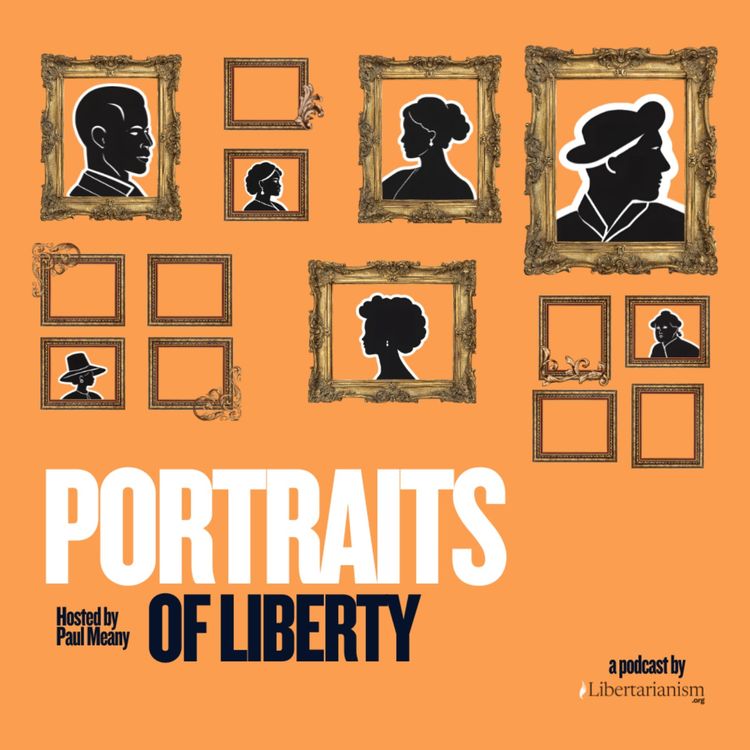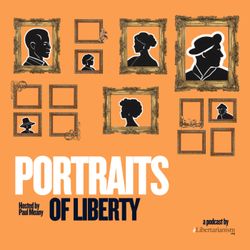Share

Portraits of Liberty
Redefining the Enlightenment: Namık Kemal (with Mustafa Akyol)
Ep. 61
•
An episode interviewing senior fellow Mustafa Akyol about the life and legacy of Namık Kemal, the Ottoman journalist and author. Born into the Ottoman Empire during the 19th century, Namık Kemal became a prolific journalist and reformer who advocated for constitutional government within the Ottoman Empire. His outlook was defined by his commitment to individual rights that are applied equally to everyone. Though exiled by the Ottoman state numerous times, Namık Kemal helped pave the way for constitutional government to take hold.
More episodes
View all episodes

The Forgotten Polish Republican: Wawrzyniec Goślicki and the Rights of a Free Commonwealth
52:04|In the late sixteenth century, Wawrzyniec Goślicki authored De Optimo Senatore (The Accomplished Senator), a bold argument for a politics grounded in natural law, civic virtue, and the constitutional liberties of the Polish–Lithuanian Commonwealth. Joined by Walker Haskins, our editor for intellectual history, Paul Meany, covers Goślicki’s career as a bishop, diplomat, and political theorist. They discuss Goślicki’s vision of checks on executive power and his rejection of arbitrary rule.
76. A Quiet Rebel: José Castellanos
15:04||Ep. 76This episode explores the often overlooked classical liberal tradition of civil disobedience through the remarkable story of José Castellanos Contreras, a Salvadoran diplomat who, during World War II, defied orders and international law to save thousands of Jewish people from Nazi death camps. His story, forgotten for decades, embodies the liberal conviction that moral law supersedes state authority.
75. Japan's Ignored Anarchist: Andō Shōeki
14:35||Ep. 75This episode explores the thought of Andō Shōeki, a Japanese philosopher who denounced feudal hierarchies, Confucian dogma, and the samurai class. Shōeki’s vision of a natural, egalitarian society based on voluntary cooperation challenges the notion that anarchist or libertarian thought is uniquely Western. His work is an early critique of state power, anticipating later theories by figures like Franz Oppenheimer.
74. Benjamin Franklin: A Versatile Genius, with Guest Mark Skousen
39:51||Ep. 74In this episode, economist and historian Mark Skousen joins us to discuss his latest book, The Greatest American: Benjamin Franklin, The World's Most Versatile Genius. Skousen highlights Franklin’s remarkable range of life experiences from scientist and inventor to statesman, printer, and philosopher—showing why Franklin has long been considered by historians to be the most modern of the Founding Fathers. Skousen reflects on Franklin’s lessons on liberty, enterprise, and the pursuit of a flourishing life.
73. Joseph Hiam Levy: A Forgotten Radical for Liberty, with guest Matt Zwolinski
28:27||Ep. 73J.H. Levy was a prominent but now largely forgotten voice in the individualist intellectual circles of Victorian Britain, known for his passionate defense of self-ownership and voluntary social cooperation. Matt Zwolinski introduces listeners to Levy’s life, intellectual context, and the principles that drove his activism in organizations like the Personal Rights Association.This episode is also available to watch on Youtube.
72. Liberty With an Asterisk: Black Americans In the Revolution Era
20:51||Ep. 72In this podcast, we revisit the lives of Elizabeth Freeman, Lemuel Haynes, and James Forten, three Black Americans who lived through the contradictions of the Revolutionary era and helped expand its ideals. These three did not passively await emancipation but seized the rhetoric of liberty and used it to reshape law, religion, and civil society. Their stories illuminate the untold Black contribution to the founding vision of the American Republic.
71. The Father of Abolitionism: John Rankin (With Caleb Franz)
50:24||Ep. 71An episode interviewing Caleb Franz covering the life of the abolitionist minister John Rankin. From his hilltop home in Ripley, Ohio, Rankin established a safe haven for enslaved people crossing the Ohio River. Over the course of his life, he became one of the most active conductors on the Underground Railroad, helping hundreds of enslaved people escape to freedom. Rankin was a powerful voice for individual liberty. His Letters on American Slavery, published in the 1820s, were among the earliest and most forceful arguments for the immediate abolition of slavery.
70. How Self-Interest Built Societies: Bernard Mandeville
16:26||Ep. 70This episode explores the provocative work of Bernard Mandeville, who argued that everything from commerce to civilization itself emerged not from altruism, but from self-interest, vanity, and competition. In his poetic satire and philosophical essays, Mandeville laid the groundwork for understanding society as an evolving system shaped by passions, not perfection.
69. Shyamji Krishna Varma: A Spencerian Radical
27:28||Ep. 69Drawing from Hebert Spencer, Shyamji Krishna Varma, an Indian revolutionary and journalist, challenged British colonial rule. From his rise as a Sanskrit scholar to his establishment of India House and the Indian Sociologist in London, his work laid the foundation for a transnational anti-colonial movement. His life is a testament to how classical liberalism and the fight for self-determination were deeply intertwined in the battle against empire.